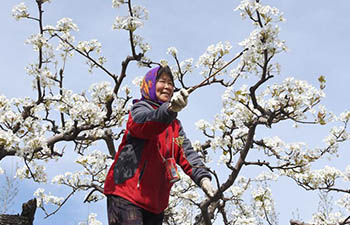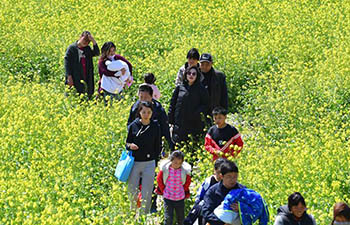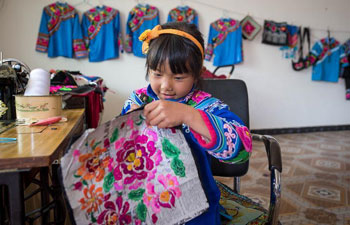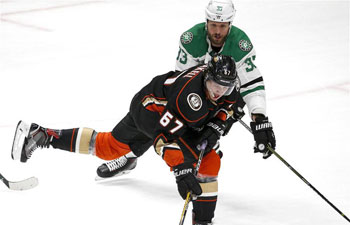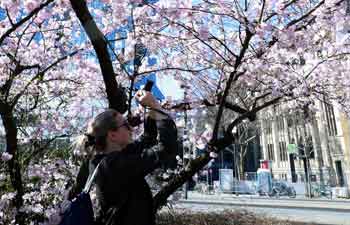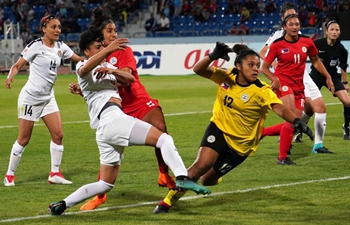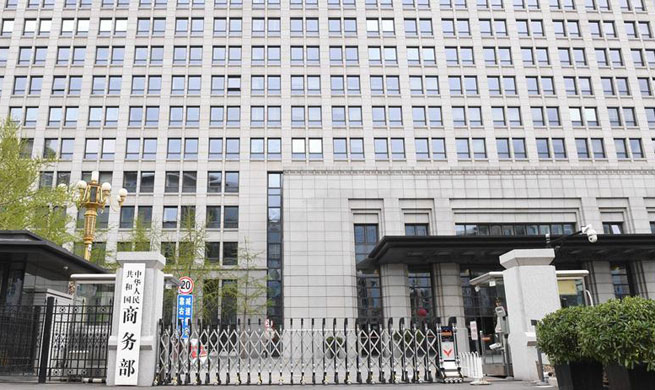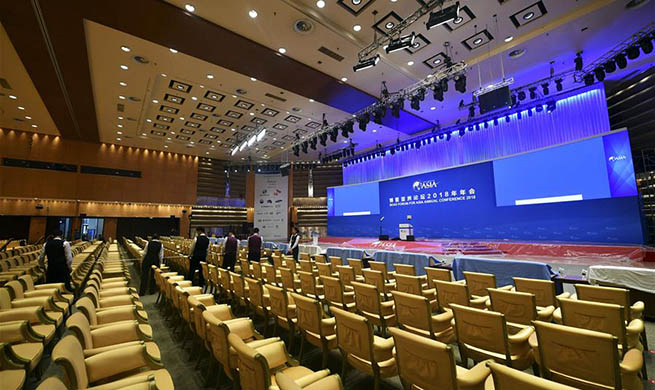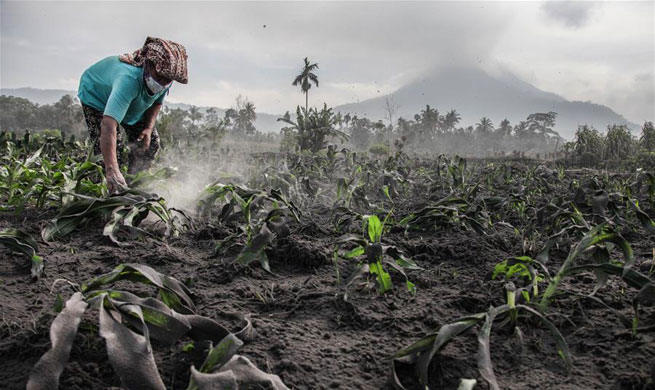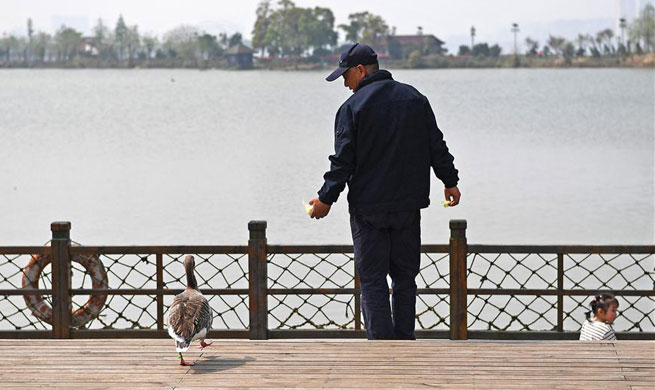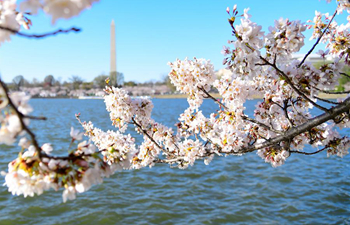GAZA, April 7 (Xinhua) -- A few hundred meters away from the border between eastern Gaza Strip and Israel, Palestinians who stay in the tents for massive rallies enjoy wedding celebrations, camel and horse races despite confrontations.
Members of the Nasser family spent a joyful evening on Thursday in the tents dancing with traditional songs at the wedding party of Ahmad Nasser, the son of the family.
The tents erected in five different areas in eastern Gaza Strip are part of a six-week rally that began on March 30 to mark the Palestinian Land Day and is scheduled to end on May 15 to mark the Nakba Day, or the Catastrophe, which falls one day after the anniversary of the establishment of the state of Israel.
One of the participants in the wedding party carried the groom on his shoulders, as Nasser waved a Palestinian flag in one hand and a Palestinian black-and-white Kofeyya, or scarf, in the other.
Elder men of the family danced together waving old iron-made swords, as traditional music kept playing.
The wedding party was held in the area east of the southern Gaza Strip town of Rafah on the ruins of the Rafah Airport runway close to the border with Israel and Egypt.
Israel destroyed the airport, which was built during the era of late Palestinian leader Yasser Arafat in 2001.
Wearing a black wedding suit and a tie, Nasser told Xinhua that it wasn't planned at all to hold the wedding party in this place, "but coincidently, it was a very nice idea to make the party here, although it is risky because Israeli snipers may turn our happiness into grief."
The Gaza Health Ministry said that the Israeli soldiers have shot dead 31 Palestinians and wounded over 3,000 with all kinds of ammunitions, including live and rubber-coated gun shots and tear gas.
Nasser's father, who wears traditional garment, said with a wide smile that "we want to turn all fields into fields of joy and celebrations until the end of the occupation and until all refugees return to homes in their towns and villages they were forced to leave in 1948."
In spite of the Israeli intensive use of power, which was described by the Palestinians as "excessive" against the rallies, the organizers of the Great March of Return insist that they will carry on up to the end of their schedule that ends on May 15.
Since the beginning of the march, the Palestinian participants have been carrying out various activities. Part of them was to deal with confrontations with the Israeli soldiers stationed at the fence of the border.
However, other parts of the rallies were activities of entertainment and a revival of Palestinian heritage.
East of the southern Gaza Strip town of Khan Younis, the family of Abdul Hadi Shwali, 52, enjoyed a very good time on Thursday afternoon when they went to what they call "the camps of return" to watch races of camels and horses.
One of Shwali's children asked his father about the history of his family, and the father replied in details how his grandfathers used to live a happy life before 1948 in Haifa, in northern Israel, and described in details how beautiful the groves of citrus and the greed fields during that time.
Outside the tents, several Palestinian women, wearing traditional Palestinian dresses, were baking traditional bread on stoves operated by wood. After women finished baking the bread, they offered Shwali family and his children some of the hot bread to enjoy its natural taste.
Ahmad al-Najjar, one of the organizers of the camps, said "the Israeli side tries to show the world that our rallies are violent, and we are here telling the world that it's not true."
"Our rallies are peaceful and we are trying to practice a normal life here, I believe it is our right to do so," said al-Najjar, who is in charge of the sports activities of the camp east of Khan Younis in southern Gaza Strip.
Israel had repeatedly announced that it has deep concerns that Gaza militant groups, mainly Islamic Hamas movement, would use the popular rallies and marches close to the border to dig tunnels and carried out armed attacks into Israel, similar to previous attack when the Israeli soldier Gilad Shalit was kidnapped in 2006.




